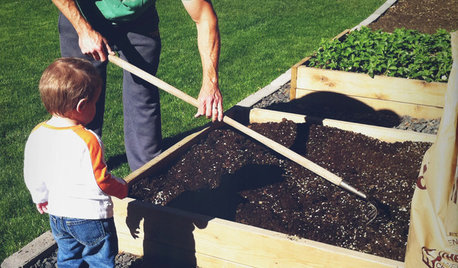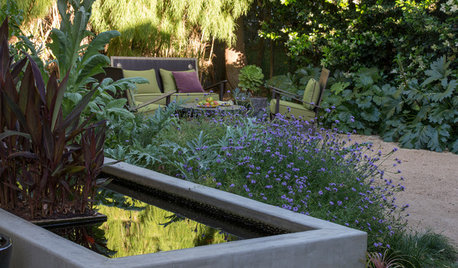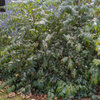Crap in my Manure?
I wonder if what I have been buying from the stores has things like heavy metals in it? Looks like I will have to buy the bags listed organic only at a greater price to know for sure?
[size=4]Dangers to food supply
http://www.youtube.com/watch?v=A2jdrP1E7vY
Crapshoot: The Gamble with Our Wastes
[quote]A hazardous mix of solid and liquid waste is flushed into the sewer every day. With literally billions of gallons of water passing through municipal sewer systems - composed of unknown quantities of chemicals, solvents, heavy metals, human waste, and food - the question becomes: where does it all go? And what effect does that have on us?[/quote]
[quote]Unfortunately, many American farmers and gardeners are unknowingly using sludge-derived "compost." One reason for this is that sludged compost is being given away free in many cities throughout the United States, and as a result, farms and homes across the country have been unknowingly spreading hazardous chemicals and heavy metals on their fields, lawns and gardens. The problem has affected even our most prestigious residence--the White House. First Lady Michelle Obama herself has taken commendable steps to alleviate contamination from sludge-based fertilizer in her garden, a result of sludge used on the White House lawn more than a decade ago.
Courts have also weighed in on the dangers of sludge and the failure of the EPA to protect our food and farms. A federal court in Georgia recently ruled that land application of sewage sludge was the cause of contamination of several farms and the cause of death of the plaintiff farm's prizewinning cattle. The court also found that rat poison in sludge came out in milk distributed via commerce. It also turns out that in defending its sludge program in this case, the EPA used fraudulent data and tried to hide what they were doing. As the court noted: "The administrative record contains evidence that senior EPA officials took extraordinary steps to quash scientific dissent, and any questioning of the EPA's biosolids program."
Despite this case and mounting evidence of the dangers in biosolids, sludge giveaway programs continue unabated and are often accellerated. Even the "green "city of he San Francisco has a sludged compost distribution program run by their Public Utilities Commission (SFPUC). The SFPUC does outreach to organic gardeners and homeowners alike urging them to use the material as fertilizer on vegetable gardens, lawns, farmland, flowerbeds, and - in particular - on schoolyards and playgrounds.
Misleadingly, the City calls this a compost giveaway when it is really a sludge giveaway. The City has even called this sludge "organic" compost. . The SFPUC should know that, as I've already mentioned, sewage sludge is a "prohibited method" under the national organic regulations so it is not only misleading but potentially illegal for the city to label sludge-derived compost as "organic."
There is very good reason to prohibit growing organic food in sewage sludge. While the natural elements in compost break down in soil, sewage sludge contains heavy metals and myriad chemical pollutants that remain in the soil for years. Neither treatment nor composting removes the material's toxins and heavy metals which persist in the soil and which may contaminate the foods grown in it. For these reasons, using sewage-sludge-based fertilizer on playgrounds and school gardens is particularly egregious when you consider the potential for children's exposure to these highly toxic substances.
San Francisco's should know better. Its sludge tested in 2008 included poisons like p-Isopropyltoluene, an industrial chemical used to manufacture consumer goods; 1,4-Dichlorobenzene, a disinfectant and pesticide; tolulene, an aromatic hydrocarbon used as an industrial solvent; 1,2,4-Trimethylbenzene, a product of petroleum refinery distillation; and phenol, also known as carbolic acid, used in the manufacture of drugs, antiseptics, and the manufacture of synthetic fibers. What's worse, the sludge-derived "compost" they are pushing comes from numerous other counties in California whose sludge had not been tested at all. This grossly violates the precautionary principle that San Francisco has officially adopted as its rule of thumb for its government programs.
[/quote]
Read the entire article at the link. http://www.huffingtonpost.com/andrew-kimbrell/give-thanks-but-not-for-t_b_369698.html
[quote]Is recycling coal fly ash at farms environmentally safe?
Tons of coal fly ash--the same substance that caused a massive emergency in Tennessee--are recycled in soil, raising questions about buildup of arsenic and other toxic substances in food crops.
By Matthew Cimitile
Environmental Health News
February 6, 2009
Crops across the country are grown in soil amended with coal fly ash--the same substance that caused a massive environmental emergency in December when it gushed from a holding pond at a Tennessee power plant.
Tons of fly ash are routinely added to soil to nourish vegetables, peanuts and other crops, primarily in the Midwest and Southeast. But now the spill has raised questions about whether this longstanding agricultural practice is environmentally sound.
Fly ash is a fine powder recovered from gases created by the burning of coal. It is the largest component of coal combustion waste, totaling around 70 million tons annually in the United States.
Adding moderate amounts increases crop yields and stabilizes soils while reducing the need to throw huge quantities in landfills or holding ponds, said Yuncong Li, University of Florida professor of soil and water sciences.
However, fly ash contains various amounts of toxic metals. And studies have shown that food crops grown in large amounts can soak up hazardous concentrations of arsenic.
Because it is not classified as hazardous waste under Environmental Protection Agency standards, there is no federal supervision of its use in agriculture. Some states regulate it but their guidelines vary and often require no monitoring of how it is used, said Jeffrey Stant, director of the Coal Combustion Waste Initiative for the Environmental Integrity Project.
"For soil amendment, most cases are left to the industry itself to monitor where they put fly ash and how much they use of it," said Stant.
For more than a decade, companies have mixed fly ash with other waste to produce soil and compost. About 50,000 tons are used annually for agriculture nationwide.[/quote]
Source: http://www.environmentalhealthnews.org/ehs/news/recycling-coal-waste-at-farms
[/size]











diggerb2
evonnestorytellerOriginal Author
Related Professionals
North New Hyde Park Landscape Architects & Landscape Designers · Middletown Landscape Contractors · Chelmsford Landscape Contractors · Haverhill Landscape Contractors · Manhattan Landscape Contractors · Munster Landscape Contractors · North Lauderdale Landscape Contractors · West Orange Landscape Contractors · Winchester Landscape Contractors · Lauderdale Lakes Landscape Contractors · Suisun City Landscape Contractors · Boise Decks, Patios & Outdoor Enclosures · Chicago Decks, Patios & Outdoor Enclosures · Green Bay Decks, Patios & Outdoor Enclosures · Jeffersonville Decks, Patios & Outdoor Enclosurescat_delgado
evonnestorytellerOriginal Author
prairiemoon2 z6b MA
cat_delgado
evonnestorytellerOriginal Author